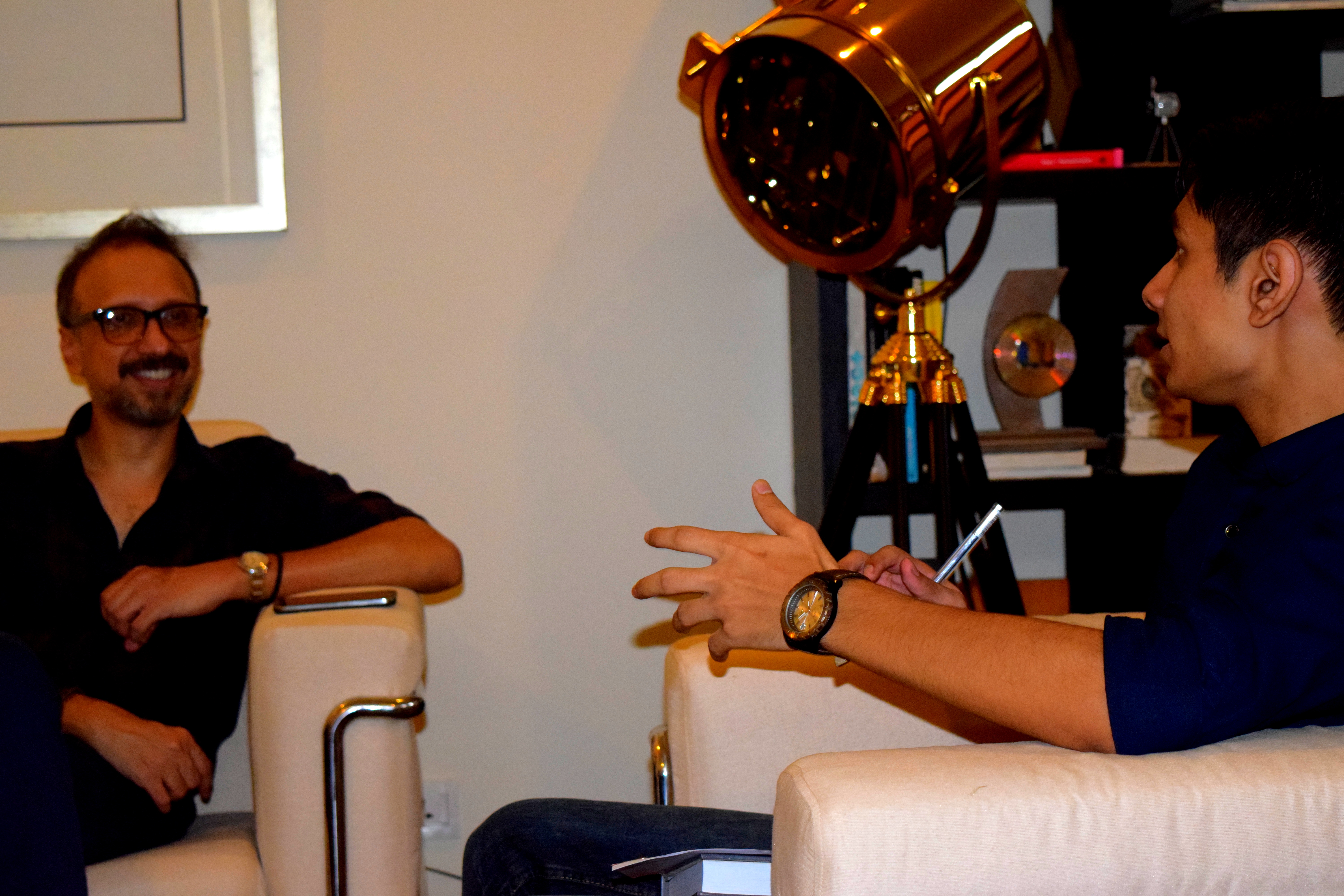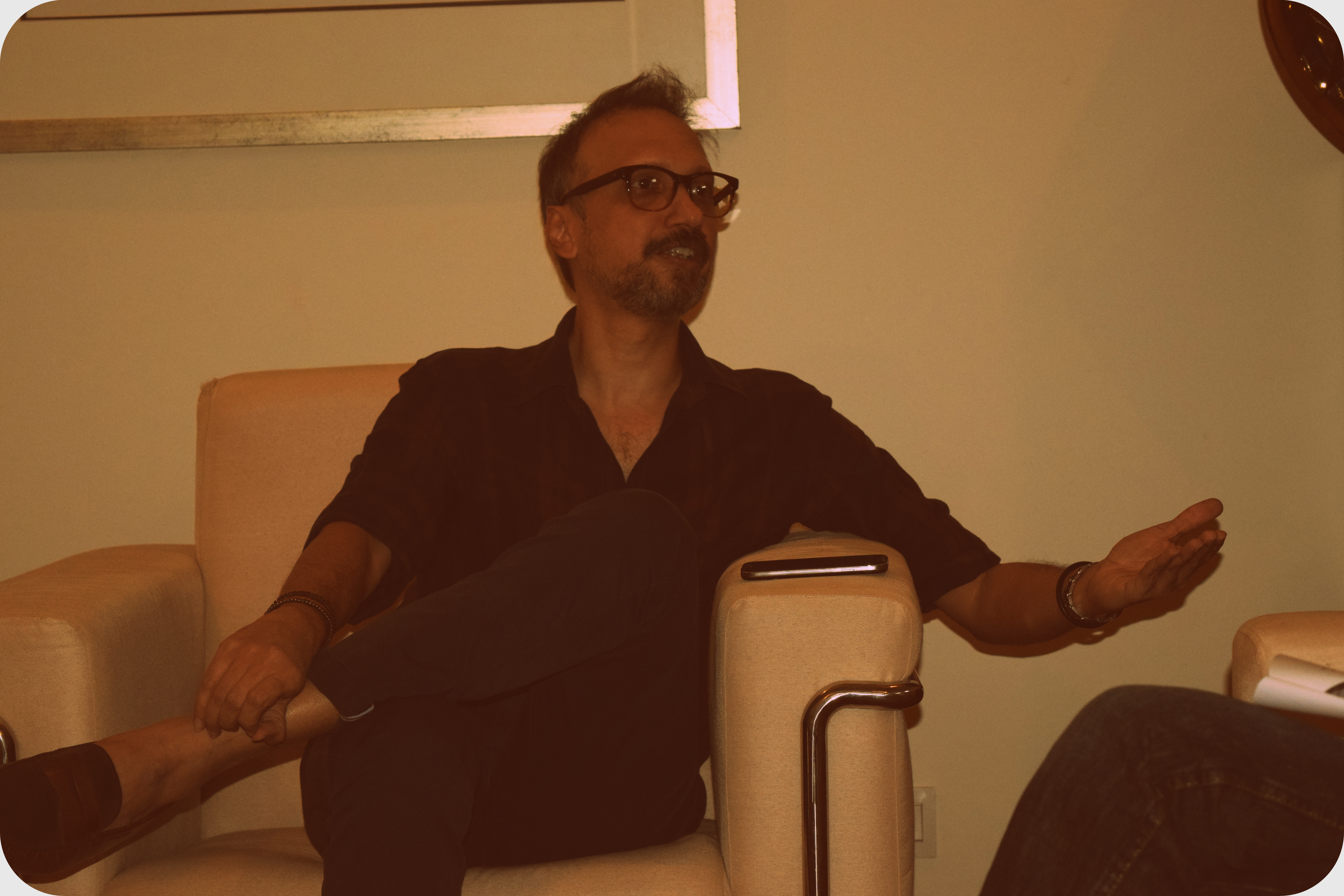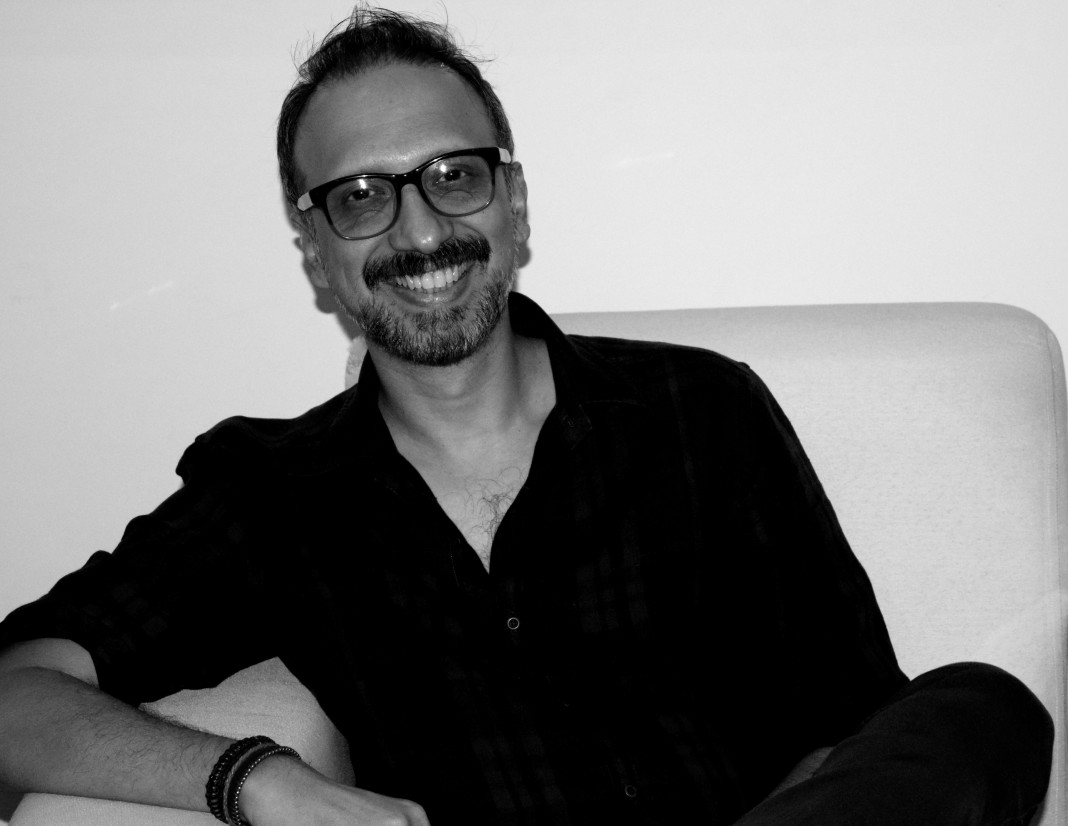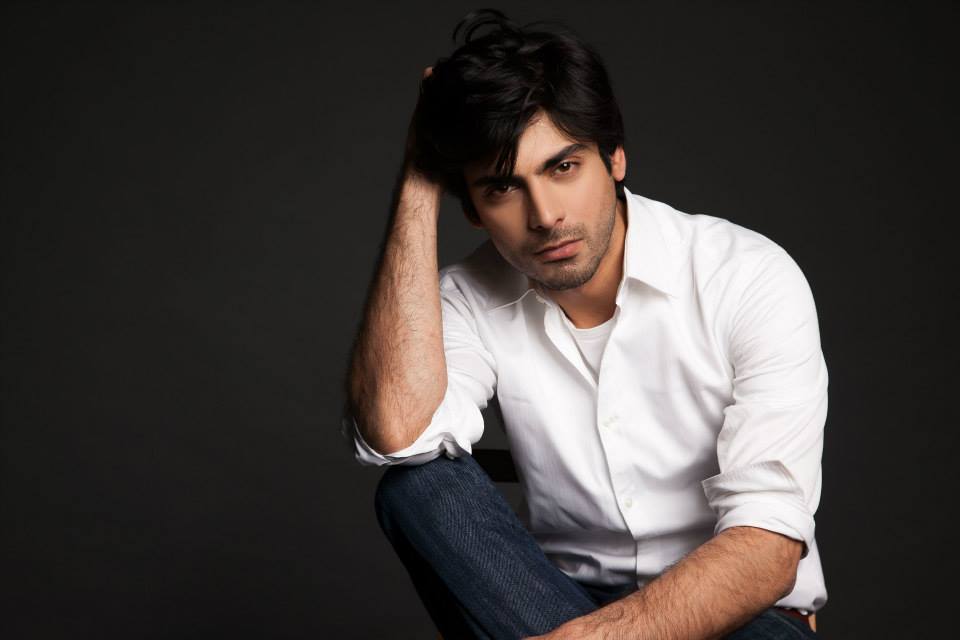In one word, he is a ‘perfectionist,’ in more than one, he has given Pakistan some of the classiest most television commercials and some music videos that definitely left their mark on us in the sea of many.
You remember those earlier Mobilink ads with Shaan Shahid, the ones that reintroduced the superstar in an entirely new persona. Or the more recent ones for Olpers or Lawrencepur, featuring Fawad Khan, Atif Aslam and Adeel Hussain? It was all Asim Raza, yes, all him. From the music video of Fakhir’s Mahi Ve to Omore’s Dark Temptation, he did it. He is the man who even made beauty cream ads look good on our television screens.
With his directorial debut feature film, Ho Mann Jahaan, now almost ready and coming on cinema screens in January 2016, we sit at the office of his production company, The Vision Factory, and talk to him about various things close to his heart.
https://instagram.com/p/2OkHdYieaA/
AM: Let’s begin it with the very beginnings of Ho Mann Jahaan. The year, the idea of it, where did it all begin? How did you know that story of Ho Mann Jahaan was really THE story for your debut film?
AR: Frankly speaking, even till today, no one knows and neither do I that what is the perfect story for anybody’s debut film. My experience and my personal belief, however, says that when you start any job, you should start with what you know best and believe in. So the seed was there, I would say for last 20 some years, and getting into ad filmmaking was also about to get into some sort of line or a branch of filmmaking, but you can say it took a more serious shape in last couple of years when I realised I have been thinking about it and want to do it, but do it right. Right because I feel there is a responsibility on each and every one of us whenever we are addressing the nation at this scale, any wrong thing, or a message wrongly delivered, can affect a lot of innocent minds. So, obviously there had to be a stepping stone, and my first film is my stepping stone, to say what I believe in, something that the story of Ho Mann Jahaan is, coming directly from my heart.
AM: Now that we know about the beginnings of Ho Mann Jahaan, let’s talk about your own beginnings in this field. A lot of the directors at one point of their life have remained aspiring actors, others gravitate towards it in a more natural way. Picking up your family camera, going outside and bringing back an amazing picture of a bee or flower. When did you realise you were meant to be for this craft?
AR: Honestly, I always wanted to be a feature filmmaker, and when I was young, probably fourteen or fifteen, or even younger, I used to find the idea of it very fascinating, the idea of putting you into a dark room for two or three hours where you have no choice but to listen to or watch what is being shown to you. It’s such an impactful exercise that no parent or grandparent can give you a lesson as strongly as that. Not to mention that it is an aesthetic medium and I wanted to get into arts and was always interested in it, in saying my stories too.

Even when I studied architecture, I did it out of the whole societal pressure as it is still considered in our country that you are only respected if you are a doctor, engineer or a pilot. I knew that it would be a bit tough for my family to understand that I want to be a filmmaker, or director. But in the process I was lucky that my family was understanding enough to let me work freelance on advertising jobs, which got me started, and once it did start, you can say I hit a fluke, and then one after another and it just went on and on like that.
AM. So Asim, people of your fraternity, or ex fraternity if that suits you more now, are quite daring. This I have to give to you guys. Bilal Lashari, Asad-ul-Haq, Jami. I mean bad films, good films, doesn’t matter. They all took the risk. Is it too much money in ads and music videos? Or the cushion of strong financers that some of them had. Or is it something in those thirty second TVCs that makes you all very natural risk takers?
AR: No it is still pretty much my fraternity, but coming to your question, I think it’s purely because every ad filmmaker, or the ad filmmakers that I am familiar with, regard feature filmmaking as their first love, and the reason why they are doing ad filmmaking is because feature filmmaking is not so commercially viable in our country, even today. So obviously, we all work because we all have to earn some money and take something back to feed our families, we all look for opportunities where we can barter, can give some and take some and ad filmmaking is the closest form of filmmaking where you can be creative and do filmmaking and at the same time get good money out of it.
The reason why everyone in this line is trying to take that leap and get into feature filmmaking is purely because they all would love to be feature filmmakers, and the moment they feel that now I can afford to take that risk, they do it. But like you said, it is a daring job, putting your own money isn’t easy in today’s world, by the end of the day it is a very hard earned money, but it’s that desire, or passion in us which forces us to even be willing to put our own money, experiment and see if we can make ourselves heard. So passion it is, and I think every ad filmmaker is inside a feature filmmaker and that’s why it happens in this line of business.
AM: Coming back to the film, I was listening to Sheryar at the film’s trailer launch and he said Adeel and I were offered each other’s roles, but we requested the director and we had them swapped. Now the original idea of giving Adeel Hussain the other role and Sheryar the other was yours, you must have had a vision for the film. So tell me, who among the two disappointed you the most or now that film is done, you think they made the right call after all?
AR: Yes, I guess everyone picked on this, and very rightfully so. I answered it that day as well, but I will explain it a little further. See, for me it is very important that a character that you are doing fits you like a glove, or you fit into that character like a glove, that is how I would like them to portray my character. I don’t like it when your actor can’t do justice with his character. So when I was initially casting for the characters of Nadir and Arhaan, I thought of Shehryar and Adeel in a certain way, but when I saw that they were being more passionate about the other character, and the reason for that being that their heart was in that other character more than this one, then what I did is that I went back to my story board and tried to see how much margin do I have to make Nadir look like Adeel and Arhaan look like Shehryar, so you see I modified my character. That’s always been my approach when faced with similar situations.
https://instagram.com/p/8xkZK7ieQ2/
The story around them was there as it is, two friends, one from the upper class household, one from the lower middle class and they both go to same college, they both have the same passion, so how does it make the difference, by giving them characteristics. I go back and I just change it around. I will change around how he’ll talk, how he’ll walk, how he’ll eat, what his habits are, what his likes and dislikes are, so that persona can be changed around, and it’s not such a big deal, but it should be changed around. I am not a stubborn director that way, maybe it’s a little more work for me to keep looking into my characterisation but as long as it’s good for the film, and as long as I know this man would do justice, no harm.
AM: We’ll come back to the film again after this next question, but tell me this, what sort of a director are you? Do you believe in making the films with happy endings, or you have this socio-political inclination too. Would you say we should expect…maybe a spy-thriller from you some day?
AR: For sure you can’t expect a spy thriller from me because I don’t think I have the knack for it, not because I don’t think they are good films but because we all have a forte and that’s just not mine. I don’t really think I am in a position where I can preach because I myself need to learn a lot before that. But at the same time my desire is to make a good combination of entertainment with some sort of substance in it. Some sort of sole in it. So these two words, ‘sole’ and ‘substance’ are a given for me. I just feel that when you get out of the cinema hall at the end of the film, you should be able to take something back home, something positive, that’s all I want to do right now. I don’t think I can do more than that.
AM: Now the very important question. Why specifically Mahira for your film? And I need an answer other than ‘she fit the character.’ Would you say you would have gone the Shoaib Mansoor way had Mahira never been explored at acting before? Would you have still chosen her?
AR: Mahira and I go a long way, I have known her for years. Much before she did the film for Shoaib sahab she actually did her first TVC with me. I always felt Mahira, since she has been doing acting and working in dramas, has been portrayed in a certain cliched way, she has been only getting characters of a certain kind, she is doing well with them because she is a very good actor and does justice to whatever she is given, but she was only doing that sort of personification. But because I know Mahira personally and know her very well, I knew that this character in my film suited her the most, in terms of her characteristics and her personality.
https://instagram.com/p/0IDzC1ieSq/
But honestly, there was one more thing as well, as humans we all tend to have our favourites, and I have mine too, Mahira being one of them. She is just like a little sister to me and we have a very strong bond, so if that bond is there, and I also believe that this is a character which is very close to her, combining it with the fact that nobody has seen her in that character, then there was no other reason for me to look anywhere else.
AM: So now that we have talked about Mahira, Let’s talk about Fawad Khan. In the BTS video you said, ‘I am making my debut film and there is no Fawad in it, not possible.’ Why did you say that? You did go the Shoaib Mansoor way this time, bringing him back in a Pakistani film after so many years, but why doesn’t he have a meatier role in the film? Did you offer him one?
AR: As I just confessed, like everyone, I have my favourites too, not because of any other reason but that I believe in their capabilities, and believe in the fact that they know their craft well, not that I am saying other people don’t. If you know that there is a dear friend, and he can do the job that you want done, and also have a mental frequency that matches wonderfully with yours, why would you look outside?
About why I didn’t offer him a more meatier role. It was surely not that I didn’t want to give him one, but it was just that first, Fawad was committed with his other assignments in India at that time, and when I was starting this film I was a very small producer and director, who was working with a small budget and small possibilities, so I needed actors who, without any distractions, could give me all the required dates, who could promise their availability and time because I didn’t have the money to keep people flying in and out, I simply couldn’t afford that luxury. Otherwise, my first ever narrative which was called Behadd; a telefilm, had Fawad in it. So it’s not that I did not start with Fawad, I did, and I would always have started with him. With Ho Mann Jahaan, it was just that if I call Fawad my friend, I must think of his benefit as well, and I did not want to force him to let go off an Indian assignment because we all know, not matter what we say, whenever one of our actor goes to India he becomes big for us, it happened with Ali Zafar and it happened with everyone else.
AM: Now this question, I am sure, people also want to know about it, but more than that it’s something I need to get answer of for my own knowledge. What is the Ho Mann Jahaan budget, where does it stand now? Is there a figure you can go public with. The sole purpose of asking this question is to know where Pakistan film industry currently stands today, in what available resources are you guys creating the wonders that you are?
AR: I would really like to answer your query, but as far as the Ho Mann Jahaan budget is concerned, I am actually not supposed to reveal a figure yet, for I am under a contract. For that other question, it’s very simple, our closest or most direct competition right now is Bollywood, making their average films on a roughly eighty to hundred crore budget. They can afford it because they have thousands of screens to get returns on their investment. We, in Pakistan, are currently sitting with roughly around fifty screens, now in those fifty screens we don’t get to show on all fifty screens when we bring a film, because there are Indian films showing, Hollywood films, and then our own films too, old ones and new ones. So out of those fifty, fifty five screens, you get to, at the most, grab roughly 20 screens, that’s if you are big enough to take the attention of the exhibitor.
It’s simple mathematics from there on, a film producer, like all investors, wants some profit on his investment. With twenty, twenty five screens, however, it becomes extremely hard for the producer investing on an average five to six crores on the film, to recover that money, unless the film gets at least 6-8 weeks to show in a number of screens, that’s when he breakevens. So you invested the money in a film for a year, and after a year you get the same amount back, no profit, makes you think, doesn’t it?
https://instagram.com/p/0ICkECieRE/
But it’s a catch 22, if you don’t increase the budget, then you are no competition, you increase it then there is that risk factor. It’s a simple choice between a character on screen wearing a Cotton Kurta and other brocade. The viewer just wants the gloss, he doesn’t care if you had two rupees and the other guy ten thousand. This leaves us, the filmmakers, in an extremely mad crux. To combat that we bring sponsors, which is again tasteless at times, I agree, and I too have also tried my best to keep a tasteful balance, but at the same time, we need money from somewhere, in order to bring you something which is glossy enough for you to feel proud of. So it’s either that or the fact that If I have a decent sofa, or a decent lamp in my room, I will take this tomorrow at the risk that it might just crack or break, just to give you something decent enough, only because I cannot afford to buy a new one for you and for the film, so that’s how we are all making the two ends meet.
AM: I am sure being a music video director you have developed quite an ear for music. The recently released film music says a lot about it. So up to the time, yet such easy to digest tracks. Apart from that great upbeat Asrar song, even the Qawwali was kept on the mellow side. What was the approach behind it. Would the movie also be this light hearted, easy to digest, watch-enjoy-and go home with a smile type?
AR: I was reading this review the other day and they were saying that the music was nice but it was soft, you see the thing is that the film music, or rather film soundtrack is a lot different from just another song. A musician can make any kind of song and release it but when you are making a song for a film you have to understand that it has to cater to the situation that it is going to erupt on. My film is surely not a tentalising venture where everything is going to be so larger than life that it will make you forget Dabangg. Neither do I have resources nor the mind to create those sort of masterpieces, I create real, light drama, and that’s the reason I am calling my film a coming of age story. When songs come in my film, I want them to be as believable or as in perspective as it can possibly be, I don’t want them to go so out of this world, so larger than life that they don’t gel with the film, and so the music could only go to a limit in being loud because the film is not loud.

AM: Now that we are nearing the end, tell me, the Ho Mann Jahaan phase is soon going to end for you. You know after the local, international release and all. But I would really like to know what else you are cooking? Any scripts readings and business meetings these days? And as I asked in one of the earlier questions, what should we expect from Asim Raza post-Ho Mann Jahaan.
AR: Frankly speaking, Ho Mann Jahaan are the sort of films that I can do, and that is exactly why, right now, I haven’t planned anything for myself, I wanted to wait until Ho Mann Jahaan comes out, I wanted to see how people react to it, if I feel people are connecting to Ho Mann Jahaan and they are enjoying it or responding to it, then I’ll try to make more films like that, but if I feel they are not connecting with it, then I probably would take a back seat, and would feel that maybe what I was doing earlier would be a better option for me, which is ad filmmaking. So no script readings or anything until January. I have requested everyone to not send any of those things right now, I want to know whether this nation is happy with what I have done.
:-
So that’s all folks, hope you enjoyed the interview. There are more coming in the Ho Mann Jahaan series.
Interview by: Aayan Mirza





